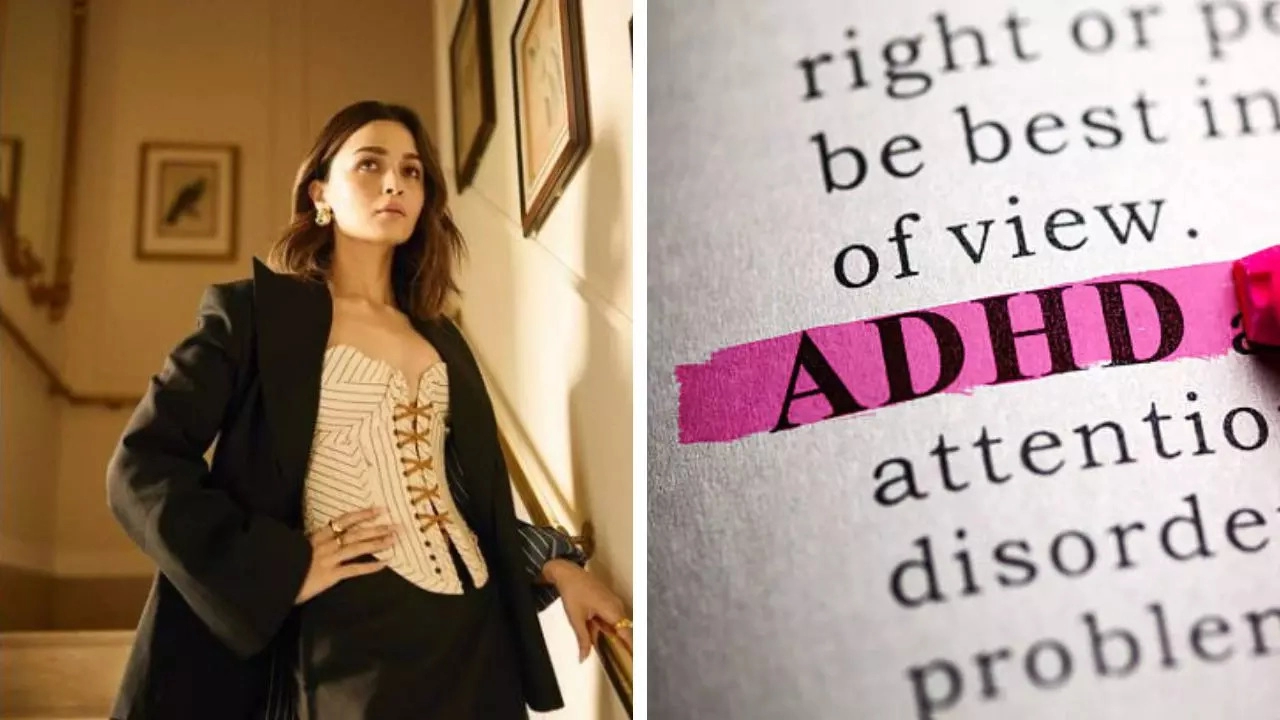
ADHD is one of the most common and most studied neurodevelopmental disorders, which usually happens in children, even though it is also diagnosed in adults
Alia Bhatt has revealed she was clinically diagnosed with ADHD or Attention-deficit/hyperactivity disorder – in people who often have difficulty with inattention, hyperactivity, and impulsivity. The 31-year-old actor recalled she used to zone out during conversations from a young age. A psychological test gave her the diagnosis.
“I’ve always zoned out in my childhood, whether it was in the classroom or my conversations. I got a psychological test done and got to know that I am very high on the ADHD spectrum. I have ADHD,” said mentioned in an interview with The Lallantop.
What is ADHD?
According to experts, ADHD is one of the most common and most studied neurodevelopmental disorders, which usually happens in children, even though it is also diagnosed in adults. Scientists have discovered there are differences in the brain's nerve networks and neurotransmitters of those with this disorder.
ADHD causes executive dysfunction – meaning it disrupts a person’s ability to manage their own emotions, thoughts, and actions. Doctors say ADHD makes it difficult for people to manage their behaviour, pay attention, control overactivity, regulate their mood, stay organized, concentrate, follow directions, and even be still.
Kids usually receive a diagnosis during childhood and the condition often lasts into adulthood. However, effective treatment is available. Left untreated, doctors say ADHD can cause serious, lifelong complications.
What are the signs and symptoms of ADHD in adults?
Doctors say the diagnosis is made on the basis of symptoms – which greatly interfere with functioning in at least two areas of life - like school or office and home. The signs of ADHD – used for diagnosis include:
- Inattention
- Lack of focus
- Not being able to organize and stay on task
- Difficulty listening well
- Trouble with following instructions and completing tasks
- Avoiding or disliking tasks that require continuous mental effort
- Losing things frequently
- Getting easily distracted by outside stimuli
- Forgetful in daily activities
What causes ADHD?
Mental health experts say there are differences in the brain structure and activity of people with ADHD that are identified for diagnosis. The frontal lobe of the brain - responsible for planning, paying attention, making decisions, and using language to moderate behaviour is mostly slow in reaching its full maturity at a later time than those of neurotypical people.
People use directed attention to suspend automatic attention - a second kind of attention, found to be extremely strong in those with ADHD. Automatic attention is the kind of attention you use when you are doing something interesting or engaging. Directed attention is the kind of attention you use when you must do something that’s tiring or of low interest. Apart from that, doctors say nerve cells – known as neurons transmit signals in your brain, which travel in groups of neurons called networks. Scientists call the automatic attention network in your brain the default mode.
Even though a lot of studies have been conducted to pinpoint on a single reason for this disorder, scientists say they do not completely understand why the signs occur and lead to symptoms of ADHD. However, some research shows that genetics plays a vital role in ADHD as it often runs in families.
Get Latest News Live on Times Now along with Breaking News and Top Headlines from Mental Health, Health and around the world.